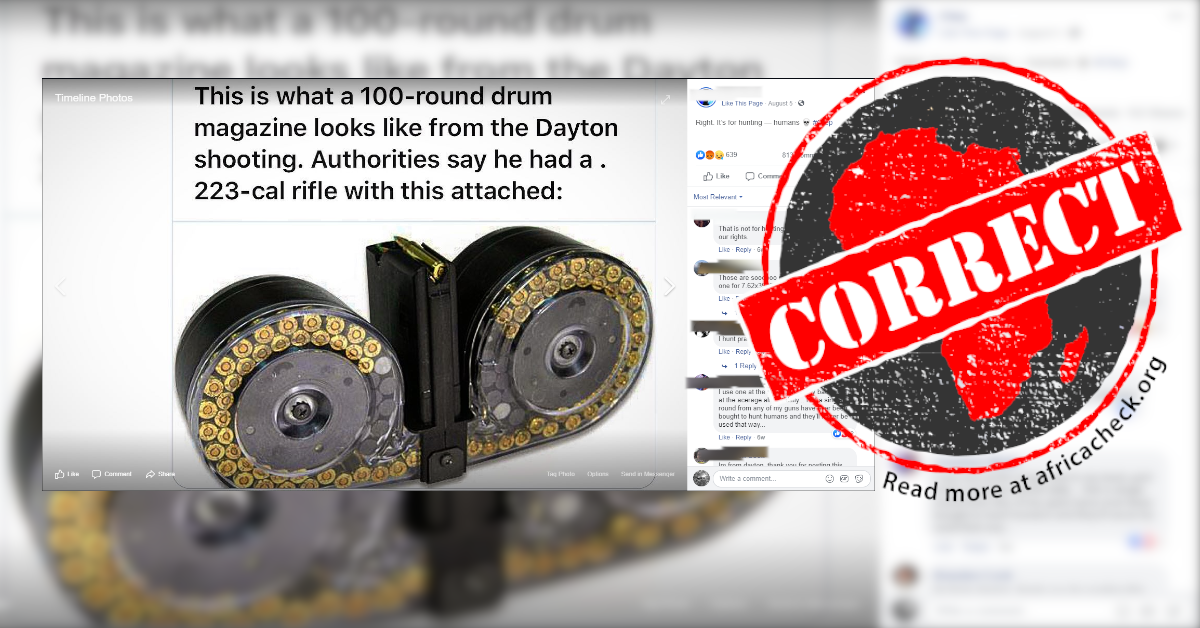A meme circulating on Facebook shows two black cylindrical shapes that hold two rows of bullets. The text reads: “This is what a 100-round drum magazine looks like from the Dayton Shooting. Authorities say he had a 223-cal rifle with this attached.”
The photo was also shared by investigative journalist Nick Penzenstadler on Twitter. It has been retweeted over 8,000 times.
On 4 August 2019, a 24-year-old man, Connor Betts, opened fire in a busy area of Dayton, a city in the US state of Ohio. In less than a minute he killed nine people and injured 27.
Betts was subsequently killed by the police.
Does the photo shared widely on social media show a “100-round drum magazine” and did Betts use something like it in his gruesome attack?

According to Richard Biehl, the chief of the Dayton police department, and official police accounts, Betts carried a .223-caliber assault rifle with a double drum magazine which had a capacity of 100 rounds.
A reverse image search shows that the image used in the meme is of a type of high-capacity magazine for firearms. The Dayton shooter had a 100-round drum magazine attached to his assault rifle which might very well have looked like the one in the meme. – Africa Check
The photo was also shared by investigative journalist Nick Penzenstadler on Twitter. It has been retweeted over 8,000 times.
On 4 August 2019, a 24-year-old man, Connor Betts, opened fire in a busy area of Dayton, a city in the US state of Ohio. In less than a minute he killed nine people and injured 27.
Betts was subsequently killed by the police.
Does the photo shared widely on social media show a “100-round drum magazine” and did Betts use something like it in his gruesome attack?

Image matches police details
According to Richard Biehl, the chief of the Dayton police department, and official police accounts, Betts carried a .223-caliber assault rifle with a double drum magazine which had a capacity of 100 rounds.
A reverse image search shows that the image used in the meme is of a type of high-capacity magazine for firearms. The Dayton shooter had a 100-round drum magazine attached to his assault rifle which might very well have looked like the one in the meme. – Africa Check
Republish our content for free
For publishers: what to do if your post is rated false
A fact-checker has rated your Facebook or Instagram post as “false”, “altered”, “partly false” or “missing context”. This could have serious consequences. What do you do?
Click on our guide for the steps you should follow.
Publishers guideAfrica Check teams up with Facebook
Africa Check is a partner in Meta's third-party fact-checking programme to help stop the spread of false information on social media.
The content we rate as “false” will be downgraded on Facebook and Instagram. This means fewer people will see it.
You can also help identify false information on Facebook. This guide explains how.



Add new comment